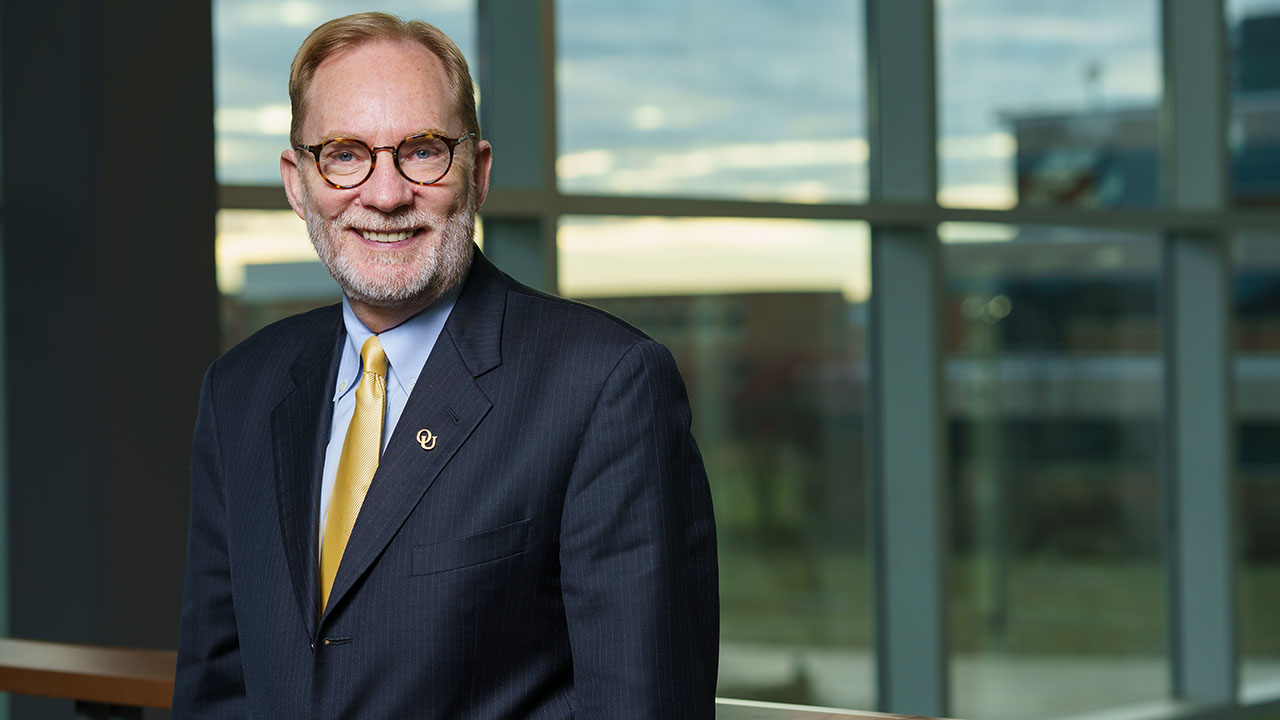Oakland University professor leads forum on future of higher education

The American Council on Education’s (ACE) inaugural Higher Education Futures Forum, led by Oakland University Professor David Stone, was convened on Feb. 13 in Washington, D.C. for the purpose of exploring the long-term future of higher education and how it might evolve over the next 50 to 100 years.
“A decade ago, I founded a nonprofit called The Institute for Transformational Education and Responsive Action in a Technoscientific Age (ITERATA), of which I serve as president,” said Stone, vice president of research at Oakland University. “Our goal is to bring new kinds of thinking to higher education.
“That kind of thinking is what we call ‘responsive,’ which we juxtapose to the dominant kinds of thinking in our age, which we call ‘reactive,’” Stone added. “There's nothing wrong with reactive thinking; we need it to immediately address issues like AI and demographic change, but reactive thinking operates within a framework of meaning that limits what can be thought to ‘things that make sense now in terms of that framework or address things that matter now inside that framework,’ so it limits our language, our logic, our values, and so our ability to imagine future possibilities.”
Working with Dr. Robert C. Scharff, professor of philosophy emeritus at the University of New Hampshire and executive director of ITERATA, Stone sought to develop a way to get people to start thinking, speaking, and acting from a more responsive place.
“I approached ACE three years ago about whether we could try to use that approach to think about the long-term future of higher education, and they agreed to partner with me to start a project that we are calling the Higher Education Futures Forum,” Stone said.
The goal of the Forum is to bring new ideas to the higher education conversation.
Stone added that “by looking 50-100 years into the future, we are freeing the conversation from having to be reactive to immediate concerns, and it allows us to use the approach we have developed through ITERATA to thinking responsively.”
The inaugural forum brought together seven distinguished leaders in higher education, including: Joe Bertolino, president at Stockton University; Jon Harbor, interim chancellor at Purdue University Global; Mark Hagerott, chancellor at North Dakota University System; Richard Helldobler, president at William Paterson University; Dennis Holtschneider, former president at DePaul University and consultant at Nygren Consulting; Amber Johnson, assistant vice chancellor and chief of staff at the University of California, Berkeley; and Elaine Maimon, president emerita at Governors State University.
In addition, Stone was joined by Hironao Okahana, vice president and executive director of ACE’s Education Futures Lab, and Lindsey Myers, director of ACE’s Learner Success Lab, in facilitating the four-hour session.
During the Forum, participants identified several critical areas where the current meaning framework may no longer provide possibilities for thought and action that are responsive to what experts and leaders are experiencing. These starting points for potential future responsive actions included:
• Higher education’s evolving relationship with the economy;
• The traditional model of faculty training;
• The definition of being “highly educated” in the age of artificial intelligence;
• The commodification of access to higher education;
• The role of an ethic of care in institutional decision-making; and
• The effectiveness of current accountability and governance structures.
“The next step for the Forum is for Dr. Scharff and I to do a series of one on one, deeper dive conversations with a few of our inaugural participants, as well as a broader range of higher education thought leaders from around the world to see if we can get additional responsive ideas that can form the basis for pilot efforts that we can test through ACE,” Stone said. “Eventually, we will also take those ideas to wider audiences through a series of virtual sessions that invite anyone interested to participate.”
To learn more about the American Council on Education, visit www.acenet.edu.
For more information about the Institute for Transformational Education and Responsive Action in a Technoscientific Age, visit www.iterata.org.

 April 17, 2025
April 17, 2025







